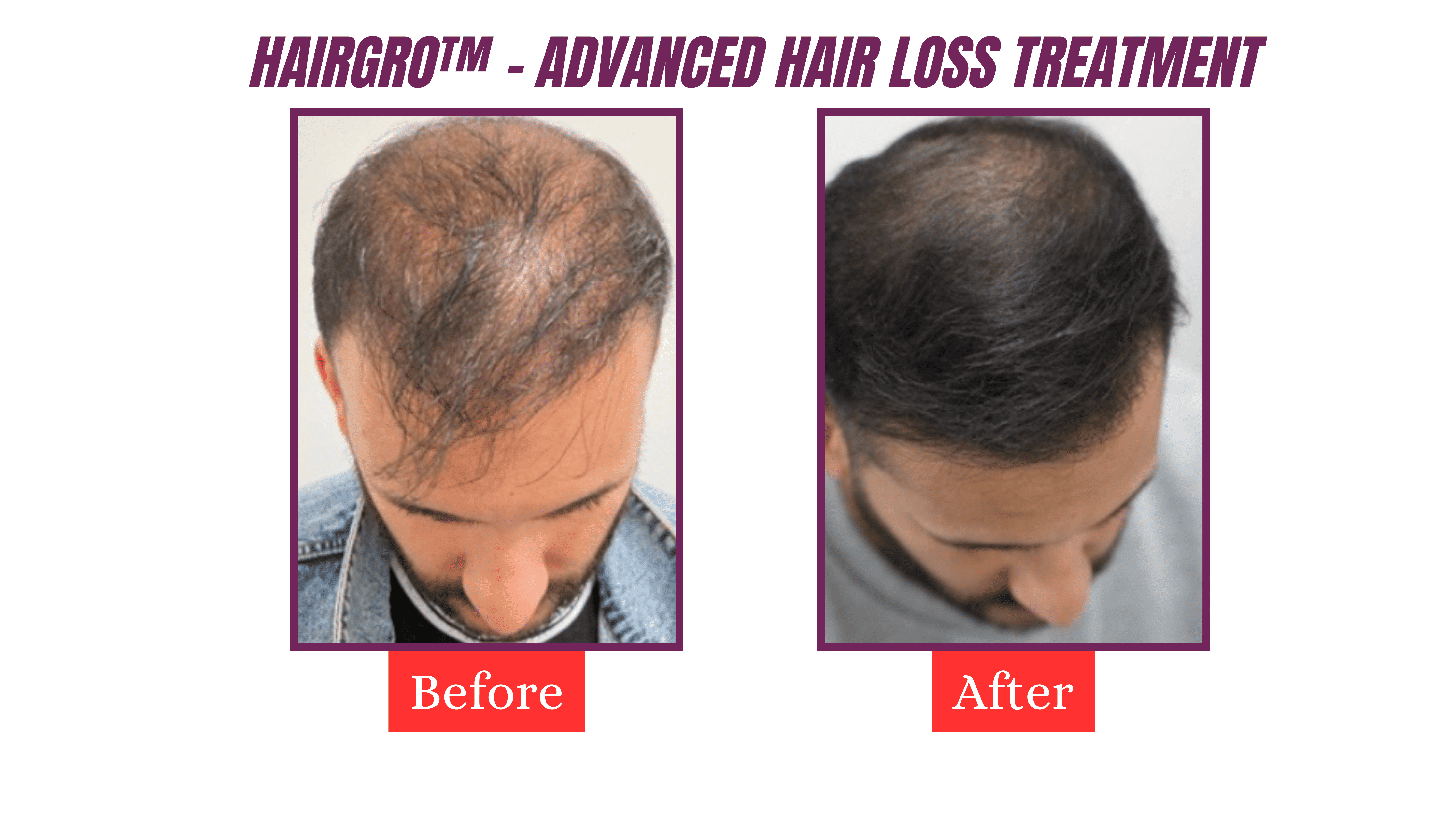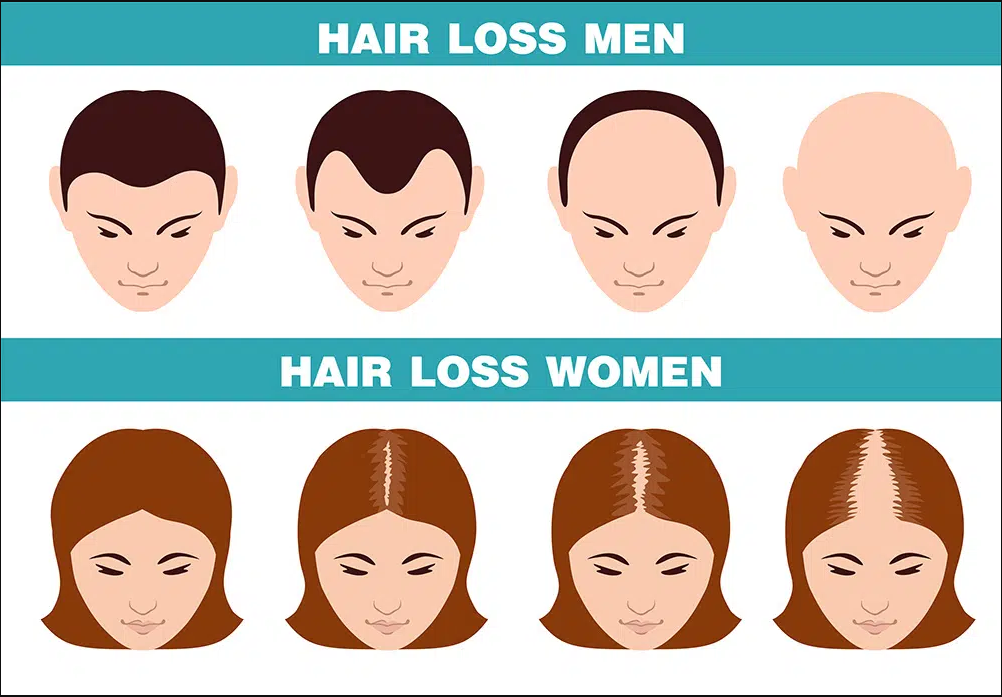Hair Fall

What is Hair Fall or Hair Loss?
Hair fall, also known as hair loss, refers to the condition where an individual experiences excessive shedding of hair from the scalp or other parts of the body. While it’s normal to lose between 50 and 100 hairs daily, a noticeable increase in hair loss can be a cause for concern. Hair loss may lead to thinning hair or bald patches, which can negatively impact a person’s confidence and self-esteem. Multiple factors contribute to hair fall, and identifying the underlying cause is key to implementing effective treatments to restore healthy hair growth.
Each hair follicle goes through a unique life cycle that can be influenced by factors like age, illness, and other external factors. This life cycle consists of three stages:
- Anagen: The active growth phase, which typically lasts between 2 to 8 years.
- Catagen: The transitional phase, lasting 2 to 3 weeks.
- Telogen: This Phase lasts about 2 to 3 months. At the end of this phase, the shed hair is replaced by new hair, and the growth cycle begins again.
Types of Hair Fall
Here are some common types of hair loss:

Causes of Hair Fall
Various factors can contribute to hair fall, and understanding them is key to finding the right treatment. Common causes include:
- Autoimmune Disorders: Conditions where the body’s immune system attacks hair follicles.
- Environmental Factors: Pollution, harsh weather, and UV exposure that can damage hair.
- Aging: Natural aging processes slow hair growth and renewal.
- Medications: Side effects from treatments such as cancer therapies and antidepressants.
- Scalp Infections: Infections that weaken hair follicles and lead to loss.
- Genetics: A family history of hair loss can significantly influence hair fall.
- Stress: Physical or emotional stress that can disrupt the hair growth cycle.
- Hormonal Changes: Hormone fluctuations from pregnancy, menopause, or imbalances.
- Chemical Treatments & Heat: Excessive styling, heat exposure, and chemical treatments.
- Tight Hairstyles: Styles that cause traction alopecia by pulling on hair follicles.
- Poor Nutrition & Deficiencies: Lack of essential nutrients from a poor diet.
- Medical Conditions: Disorders like alopecia areata or thyroid issues affecting hair growth.
Treatments and Solutions for Hair Fall at Infinity Skin Clinic
At Infinity Skin Clinic, we offer advanced, tailored treatments for hair fall, ensuring an accurate diagnosis to address the root cause. After a detailed assessment of your medical history, we provide comprehensive solutions to manage and treat hair fall effectively. Early diagnosis and treatment can significantly increase the chances of preventing further hair loss and encouraging regrowth.
- Medications: Based on your diagnosis, our doctors may recommend topical serums or oral medications to reduce hair fall and promote healthy hair growth.
- Platelet-Rich Plasma (PRP) Treatment: This technique involves extracting a small amount of your blood, processing it to concentrate the platelets, and injecting it into the scalp to stimulate hair follicles and promote hair density and growth.
- Hair Transplant Surgery: For severe cases, hair transplantation may be recommended. This surgical procedure involves transplanting hair follicles from a donor area to areas experiencing thinning or balding, restoring fuller hair coverage.
- Mesotherapy: This minimally invasive treatment involves injecting a blend of vitamins, minerals, and nutrients directly into the scalp to nourish hair follicles, enhance blood flow, and encourage hair growth without downtime.
- Hairgro Treatment: Our advanced HAIRGRO treatment is designed to strengthen and thicken hair, improve scalp health, and enhance overall hair texture, giving you a rejuvenated and more confident appearance.
- QR678 Treatment: This innovative treatment introduces growth factors into the scalp to stimulate regrowth. Clinically validated and non-surgical, QR678 is known for excellent results with minimal side effects.
- Nutritional Guidance: We provide tailored dietary advice and supplements based on your specific hair fall condition to address any deficiencies impacting hair health.
- Lifestyle and Haircare Advice: Managing stress, getting sufficient rest, and following effective hair care routines are essential to minimizing hair loss. We offer expert guidance on lifestyle adjustments and daily hair care tips to support long-term hair health.
